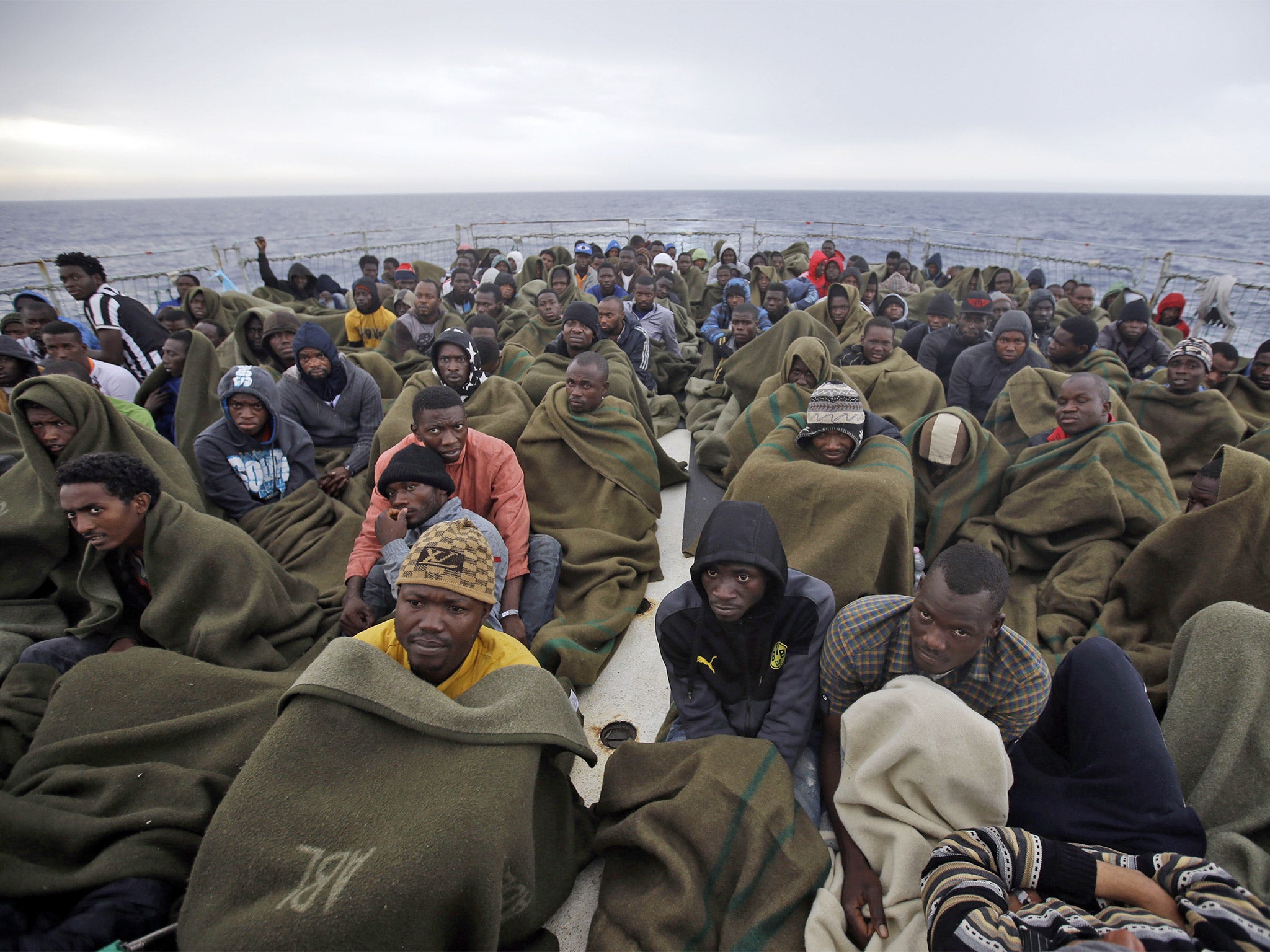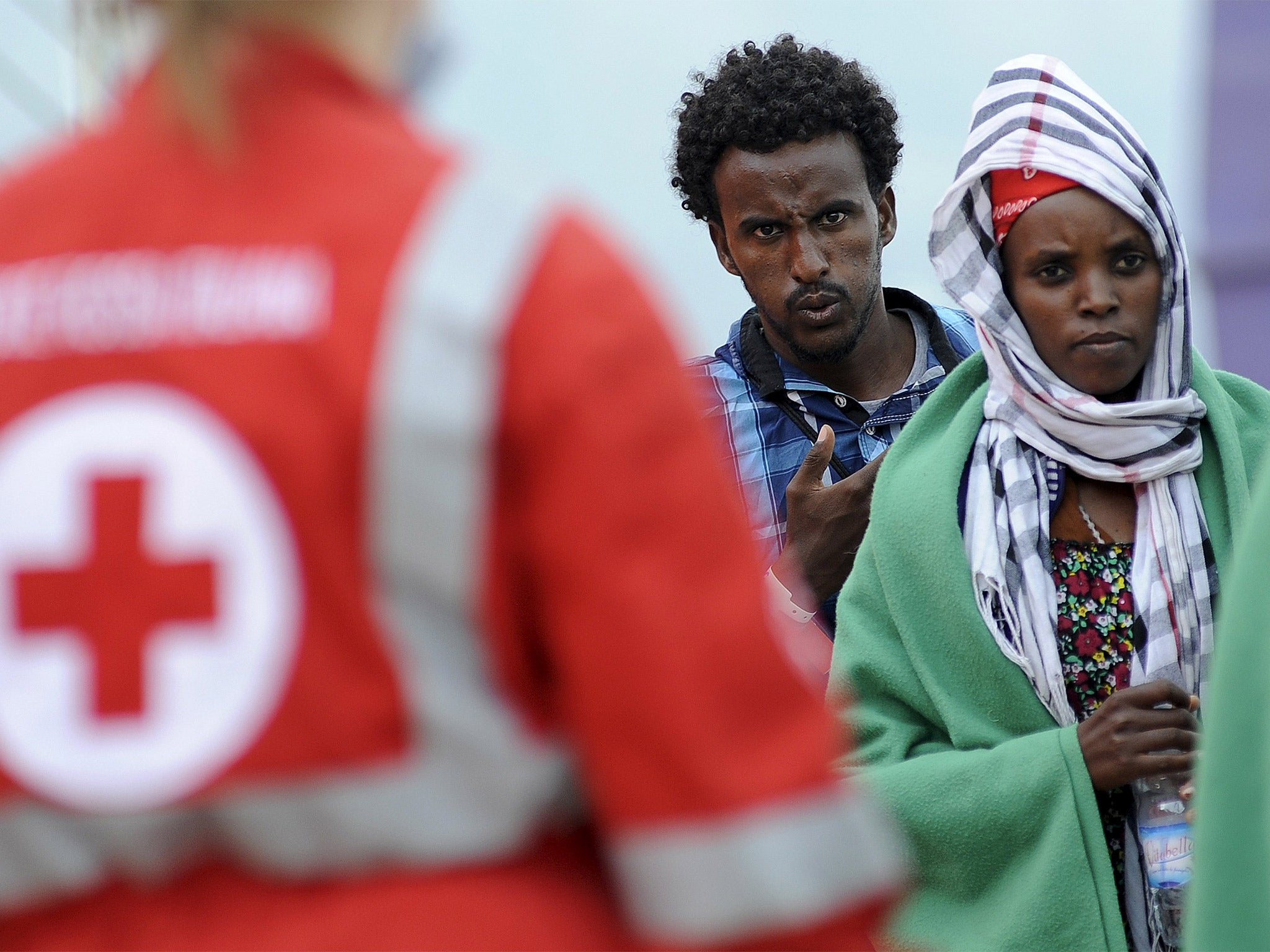Migrant crisis: Humanitarian groups urge leaders to put human lives ahead of politics instead of locking down 'Fortress Europe'
The deaths of around 800 migrants in April prompted soul-searching in the EU

Your support helps us to tell the story
From reproductive rights to climate change to Big Tech, The Independent is on the ground when the story is developing. Whether it's investigating the financials of Elon Musk's pro-Trump PAC or producing our latest documentary, 'The A Word', which shines a light on the American women fighting for reproductive rights, we know how important it is to parse out the facts from the messaging.
At such a critical moment in US history, we need reporters on the ground. Your donation allows us to keep sending journalists to speak to both sides of the story.
The Independent is trusted by Americans across the entire political spectrum. And unlike many other quality news outlets, we choose not to lock Americans out of our reporting and analysis with paywalls. We believe quality journalism should be available to everyone, paid for by those who can afford it.
Your support makes all the difference.European leaders debating migration in Brussels today must put human lives before short-term political goals, politicians and humanitarian groups have urged, cautioning against simply reinforcing borders and freezing out the world’s most needy refugees.
The deaths of around 800 men, women and children in a migrant boat wreck in the Mediterranean in April prompted soul-searching among European Union leaders, and promises of action were followed by European Commission proposals to resettle 40,000 refugees across the continent.
But an EU official conceded that the idea of mandatory quotas “will never gather support from member states” and would be watered down to a voluntary pledge with further details about who will accept new refugees postponed until next month.
The EU instead appears to be shifting the focus to locking down the borders of “Fortress Europe”. An early draft of the conclusions from the EU leaders’ summit published by the civil liberties group Statewatch includes a pledge to set up centres to fingerprint and register migrants, with more powers to the EU border agency Frontex to deport people.

Hungarian Foreign Minister, Peter Szijjarto, said they would be speeding up work on a fence along the border with Serbia, where more than 61,000 migrants have crossed this year.
“Nothing is more symbolic of Fortress Europe than building a fence,” Iverna McGowan, acting director of Amnesty International’s European Institutions Office, said. “Having a security based approach is absolutely not the solution. It is not going to change the reality of four million Syrian refugees in camps. We need a more responsible human approach.”
Martin Xuereb, director of the Migrant Offshore Aid Station, which assists migrants at sea, said the focus must be on bolstering search and rescue in the Mediterranean. “All those who feel compelled to make this crossing should not be left to die at sea and ministers must retain this at the top of their agenda,” he said.
The ongoing civil war in Syria has pushed the number of refugees in the world to the highest level since the end of the Second World War, and the political vacuum in Libya has created a thriving trade in smugglers willing to pile desperate people on unseaworthy crafts and launch them into the Mediterranean.
At least 60,000 people have arrived in Italy this year and more than 2,000 people have died attempting the crossing. Amnesty estimates that at least 61,474 refugees have also arrived on the Greek islands so far this year – up from 43,500 in the whole of 2014.
Nations on the front-line of the refugee crisis have been calling for more solidarity from the other EU nations, but countries including Britain, France and Spain are opposed to any binding quotas for redistributing the refugees. Instead governments guard their right to decide exactly who crosses their borders, wary of the influence of anti-immigration parties.
“National selfishness still prevails over solidarity,” said Gianni Pittella, the President of the Socialists and Democrats in the European Parliament. “And this national selfishness threatens to prevail in the conclusions of the next [leaders’ summit].”
In a comment piece in The Guardian Italian Prime Minister, Matteo Renzi urged Europe not to forget history.
“We want to fight for a set of values, for civility and peace,” he wrote. “This is why the European Union was founded – not for bond spreads and stability pacts, but for these values. If we ignore them now, while the Mediterranean seethes, and children drown, it is Europe itself that we lose.”
Mr Renzi took a more strident tone, telling his Senate that the centre-left “should not be afraid of repatriation”. He added that the Dublin agreement – under which asylum seekers are the responsibility of the country in which they land – was “deeply wrong.”
Join our commenting forum
Join thought-provoking conversations, follow other Independent readers and see their replies
Comments